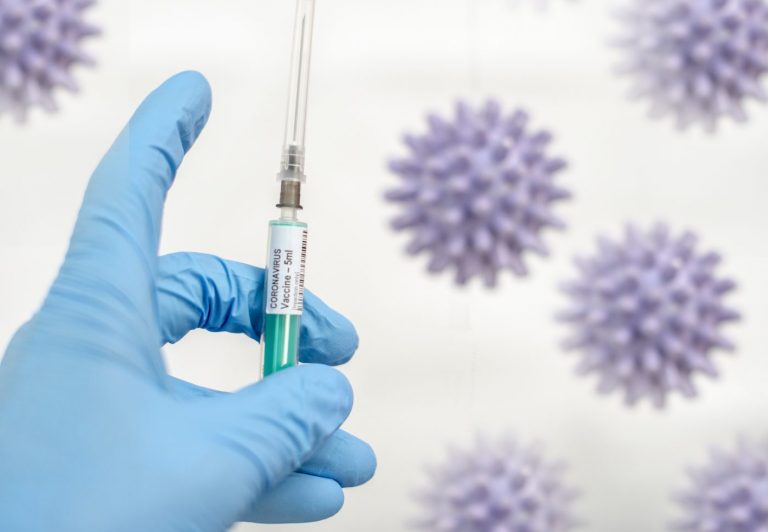
Recent results suggest that the Pfizer/BioNTech COVID-19 vaccine has good efficacy against the new UK and South African variants, whereas the Astra Zeneca/Oxford University vaccine seems less effective against the South African variant.
New mutations in the SARS-CoV-2 viral genome that appear to increase transmissibility have caused much anxiety around the globe in recent months. In particular, variants that emerged in the UK and South Africa, among others.
As most of the currently approved and upcoming vaccines have not been specifically designed to combat these strains there have been concerns that they might not be effective enough. This has prompted a round of new studies and tests by vaccine developers to check efficacy of their products against the new strains.
In a paper released today in Nature Medicine, authored by scientists at Pfizer and the University of Texas, the Pfizer/BioNTech vaccine shows good efficacy at neutralizing mutations found in the UK (N501Y, 69/70-deletion and D614G) and South African (E484K, N501Y and D614G) variants.
The researchers engineered three strains of SARS-CoV-2 in the lab to display the same mutations as the two UK strains and South African strains. They then tested 20 samples of human sera from individuals vaccinated with BTN162b2 to assess how effectively they were able to neutralize the strains with the different mutations.
When compared to the ‘parent’ virus strain, the vaccine exposed human sera protected against all three strains. Neutralization geometric mean titers for the vaccine, used to measure vaccine efficacy and immune response, were 0.81-1.46-fold those of the parent strain for the new variants.
The response was slightly smaller for the strain containing the South African variants E484K, N501Y and D614G (representing the B.1.351 strain in the community), but was still significant.
This corresponds with results from other vaccine trials. Moderna, the company behind the other approved mRNA vaccine in the U.S., also recently announced that its vaccine was effective against both the UK and South African variants, although showed lower efficacy against the latter.
The Novavax protein subunit vaccine (yet to be approved) was shown to be 85-95% effective against the parent strain and the UK variant in a phase III trial, but only had 60% efficacy against mild-severe COVID-19 in South African individuals without HIV. Similarly, the J&J/Janssen one-shot vaccine (submitted to FDA, but yet to be approved) was only 57% effective in South Africa at preventing moderate to severe disease, but 72% effective in the U.S.
Results from a recent trial of the Astra Zeneca/Oxford University vaccine ChAdOx1 nCoV-19 are disappointing for the developers, as they show very limited efficacy of the vaccine at preventing mild-moderate disease. In a cohort of around 2000 people with a median age of 31, there were 19 infections in the vaccine group versus 20 in the placebo group.
Limited data from the trial is currently available but according to Wits Vaccines and Infectious Diseases Analytics Research Unit, which runs the Oxford Covid-19 vaccine trial in South Africa, results will be available as a non-peer reviewed preprint very soon.
Although the study did not measure efficacy against severe disease and has not yet been peer reviewed, the South African government has already stopped the rollout of the Astra Zeneca/Oxford University vaccine while waiting for more data.
Notably, data from other recent studies suggest the Astra Zeneca/Oxford vaccine appears to offer good protection (74.6% efficacy) against the UK mutant strain B.1.1.7.
The team behind the ChAdOx1 nCoV-19 vaccine are already starting to develop a second-generation vaccine. “Efforts are underway to develop a new generation of vaccines that will allow protection to be redirected to emerging variants as booster jabs, if it turns out that it is necessary to do so,” said Sarah Gilbert, Ph.D., Professor of Vaccinology at the University of Oxford, one of the lead researchers behind the ChAdOx1 nCoV-19 vaccine.
“We are working with AstraZeneca to optimize the pipeline required for a strain change should one become necessary. This is the same issue that is faced by all of the vaccine developers, and we will continue to monitor the emergence of new variants that arise in readiness for a future strain change.”
Moderna and Pfizer/BioNTech, as well as others developing mRNA vaccines, are likely to have the advantage if changes are needed in future vaccines, as it is much quicker to develop new versions of these vaccines (6-8 weeks) than viral vector vaccines such as the one developed by Astra Zeneca/Oxford University.













